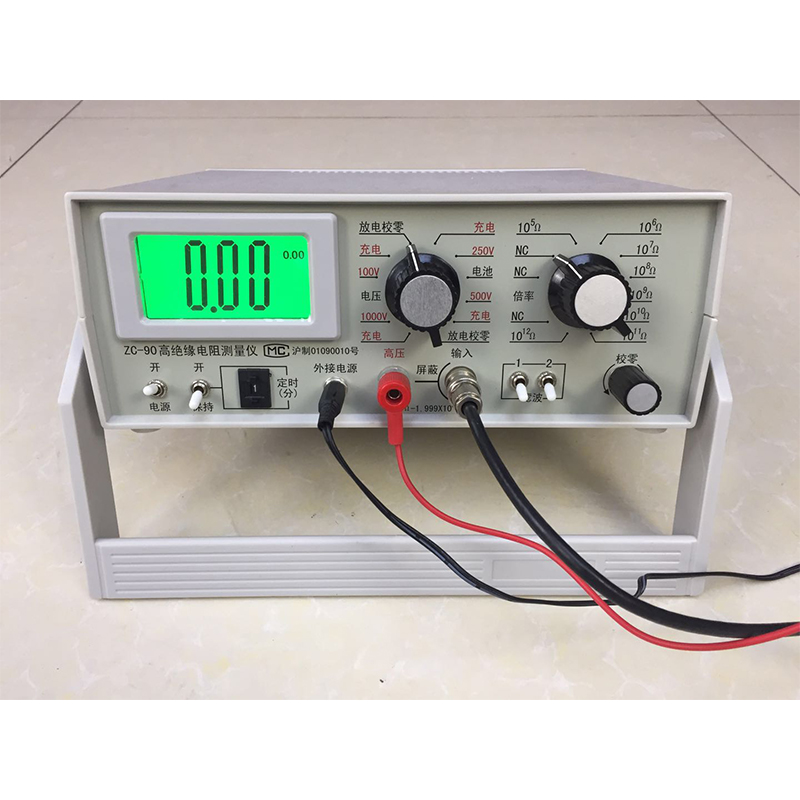Resistor Measurement Device for Accurate Electrical Testing and Troubleshooting
Understanding the Resistor Tester An Essential Tool for Electronics Enthusiasts
In today’s technologically advanced world, where electronics dominate our daily lives, the importance of reliable and precise measuring tools cannot be overstated. Among these tools, the resistor tester stands out as an essential instrument for anyone involved in electronic projects, be it a hobbyist, a professional technician, or an engineer. This article will explore what a resistor tester is, how it works, its applications, and why every electronics enthusiast should consider adding it to their toolkit.
What is a Resistor Tester?
A resistor tester is a device designed to measure the resistance of a resistor. Resistance, measured in ohms (Ω), is a fundamental property of electrical components that opposes the flow of electric current. Understanding resistance is crucial in circuit design, troubleshooting, and ensuring devices operate within their specified parameters.
Typically, resistor testers are compact, handheld devices that can display resistance values on a digital or analog display. More advanced models may also include features for measuring other electrical parameters, such as capacitance or voltage, making them multifunctional devices.
How Does a Resistor Tester Work?
The operation of a resistor tester is straightforward. When testing a resistor, the device passes a small, known current through the resistor and measures the voltage across it. According to Ohm's Law, which states that Voltage (V) = Current (I) × Resistance (R), the tester can calculate the resistance by rearranging this formula to R = V/I.
Most modern resistor testers employ microcontrollers that provide a digital display for easy reading and can also store measurements for later review. Some sophisticated models even have built-in functions to identify resistor color codes automatically, ensuring that users can quickly know the resistance without manual calculations.
Applications of a Resistor Tester
Resistor testers have a wide range of applications in the electronics field. Here are some key areas where they prove invaluable
resister tester

1. Troubleshooting Circuits A common use of a resistor tester is in diagnosing faulty electronic devices. By testing the resistors within a circuit, technicians can identify components that are out of specification, helping them pinpoint issues quickly.
2. DIY Projects and Prototyping For hobbyists building their own circuits, a resistor tester is essential for ensuring that the resistors used are of the correct value. This can prevent costly errors and malfunctioning prototypes.
3. Quality Control In manufacturing settings, resistor testers are used to check the quality of components before they are installed in products. Ensuring that resistors meet their specified tolerances is critical for maintaining the performance and safety of electronic devices.
4. Educational Purposes For students and educators in electronics, resistor testers serve as great learning tools. They provide hands-on experience in measuring resistance, helping to reinforce theoretical concepts discussed in the classroom.
Why Invest in a Resistor Tester?
The value of a resistor tester lies not only in its practicality but also in the peace of mind it provides. Incorrect readings or the use of faulty components can lead to circuit malfunctions, which may pose safety hazards or result in costly repairs. By having a reliable resistor tester, users can ensure that they are working with accurate components, thereby enhancing the safety and reliability of their projects.
Moreover, many resistor testers are relatively inexpensive and accessible, making them a wise investment for anyone serious about electronics. The ability to quickly and accurately measure resistance can save significant time and effort in the long run, whether solving problems on complex circuits or simply ensuring that DIY projects are built to last.
Conclusion
In conclusion, a resistor tester is more than just a handy tool in an electronics toolkit; it is a vital instrument that enhances both safety and efficiency. Its fundamental role in measuring resistance makes it indispensable for troubleshooting, prototyping, quality control, and education within the electronics field. For those passionate about electronics, investing in a resistor tester is sure to yield numerous benefits, paving the way for successful projects and innovations in the fascinating world of technology.
-
Why the Conductor Resistance Constant Temperature Measurement Machine Redefines Precision
NewsJun.20,2025
-
Reliable Testing Starts Here: Why the High Insulation Resistance Measuring Instrument Is a Must-Have
NewsJun.20,2025
-
Flexible Cable Flexing Test Equipment: The Precision Standard for Cable Durability and Performance Testing
NewsJun.20,2025
-
Digital Measurement Projector: Precision Visualization for Modern Manufacturing
NewsJun.20,2025
-
Computer Control Electronic Tensile Tester: Precision and Power for the Modern Metal Industry
NewsJun.20,2025
-
Cable Spark Tester: Your Ultimate Insulation Assurance for Wire and Cable Testing
NewsJun.20,2025
 Copyright © 2025 Hebei Fangyuan Instrument & Equipment Co.,Ltd. All Rights Reserved. Sitemap | Privacy Policy
Copyright © 2025 Hebei Fangyuan Instrument & Equipment Co.,Ltd. All Rights Reserved. Sitemap | Privacy Policy
